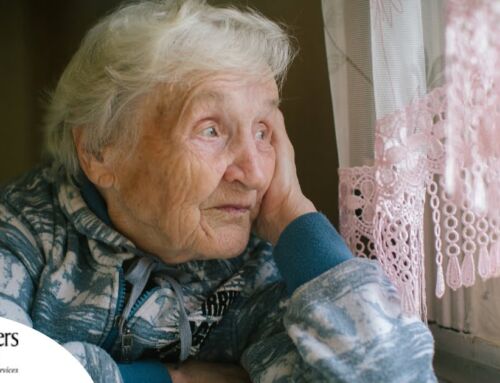Watching a loved one’s memory fade is one of the most difficult experiences a family can face. As you navigate this journey, a critical question arises: what is the best care environment for them? The decision often comes down to two primary options: in-home care or a specialized memory care facility. Both offer unique benefits and present different challenges, and the right choice depends entirely on your loved one’s specific needs, your family’s capacity, and financial considerations.
Making this decision can feel overwhelming. You want to ensure your loved one is safe, comfortable, and receiving the best possible support. This guide compares information on in-home care and memory care facilities, offering insights to help you make an informed and compassionate choice. We’ll explore the key differences, benefits, and potential drawbacks of each, providing a clear path forward for families in Lauderhill and the surrounding Boca Raton, Aventura, Miami, Fort Lauderdale, West Palm Beach, and Broward, Palm Beach, and Miami-Dade counties areas.
Understanding the Core Differences
Before diving into the specifics, it’s important to understand the fundamental distinction between these two Alzheimer’s and dementia care options.
In-home Care
Allows your loved one to remain in the familiar and comfortable environment of their own home. Professional caregivers visit for a set number of hours per day or week, or even provide around-the-clock support. Services can range from companionship and help with daily tasks to more specialized medical assistance to long term care.
Memory Care Facilities
On the other hand, is a residential community designed specifically for individuals living with Alzheimer’s disease, dementia, and other forms of memory loss. These facilities offer a secure environment, structured routines, and specialized programs administered by staff trained in memory care.
Geriatric specialists note the decision between home care and memory care isn’t about which option is ‘better’ overall, but which is most appropriate for the individual’s stage of illness and health. In the early stages, the familiarity of home can provide comfort and stability, but as Alzheimer’s progresses, the structure and safety of a residential memory care setting may become necessary.
The Benefits of In-Home Care for Memory Loss
For many families, keeping a loved one at home is the preferred first step. The emotional comfort of familiar surroundings cannot be overstated for someone experiencing memory loss.
Key advantages of in-home care include:
- Comfort and Familiarity: Remaining at home minimizes the confusion and anxiety that can come with moving to a new environment. This stability can help slow the cognitive decline and improve overall quality of life.
- Personalized, One-on-One Attention: A dedicated caregiver provides focused support tailored directly to your loved one’s needs and preferences. This allows for a strong, trusting relationship to form through personal care.
- Maintaining Independence: In-home care helps aging seniors maintain a sense of autonomy for as long as possible. They can stick to their personal routines, eat their favorite foods, and sleep in their own bed.
- Flexibility and Customization: Care plans can be easily adjusted as your loved one’s needs change. You can scale hours up or down, from a few hours a week for companionship to 24/7 skilled nursing care. Learn more about our flexible services.
- Family Involvement: Having care provided at home makes it easier for family members to remain actively involved in daily life and care decisions.
Challenges to Consider with In-Home Care
While the benefits are significant, it’s also important to acknowledge the potential challenges. As dementia or Alzheimer’s disease progresses over time, the level of care required can intensify, sometimes beyond what can be practically managed at home.
- Home Safety Modifications: You may need to make modifications to the home—like installing grab bars, securing doors, or removing tripping hazards—to ensure safety.
- Social Isolation: Depending on the structure of care, your loved one might have limited opportunities for social interaction with peers, which is a key component of many memory care facilities.
- Caregiver Burnout: Family members who are primary caregivers, even with professional help, can experience significant emotional and physical strain.
- Cost: While often more affordable than residential care initially, the cost of 24/7 in-home care long term can become substantial and may eventually exceed that of a memory care facility.
For families in the Lauderhill area, CareGivers of America can help navigate the complexities of creating a safe and supportive home environment for dementia care.
Exploring Memory Care Facilities
Memory care facilities are a specialized form of assisted living designed to provide a safe, structured, and supportive environment for individuals with cognitive decline.
Key advantages of memory care facilities include:
- Specialized Staff and Training: Every staff member, from nurses to activities coordinators, is trained in dementia care. They understand how to manage challenging behaviors with compassion and skill through personal care.
- Secure and Purpose-Built Environment: These facilities are designed for safety. Secured exits prevent wandering, and layouts are often simple and intuitive to reduce confusion.
- Structured Activities and Social Engagement: A core component of memory care is a schedule of structured activities designed to engage residents cognitively, physically, and socially. This can include art therapy, music, gentle exercise, and supervised social events. You can find helpful resources on activities for seniors at the National Institute on Aging.
- 24/7 Supervision and Medical Support: Residents have around-the-clock supervision and immediate access to medical support, which provides significant peace of mind for families.
- Relief for Family Caregivers: Moving an elderly loved one to a memory care facility can alleviate the immense pressure on family caregivers, allowing them to focus on their relationship rather than the logistics of care.
According to the Alzheimer’s Association, many people begin with care in the home, but may transition to a memory care facility as a loved one’s needs progress—in particular, when safety concerns like wandering or the need for round-the-clock supervision arise. This transition often provides greater peace of mind and ensures ongoing, specialized support (Alzheimer’s Association).
Challenges of Memory Care Facilities
- The Transition: The move itself can be traumatic and disorienting for someone with memory loss. Leaving a lifelong home is an emotional challenge for the entire family.
- Less Personalized Attention: While the staff-to-resident ratio is typically low, the care is not one-on-one. Your loved one will be one of several residents a caregiver is responsible for.
- Cost: Memory care is a significant financial commitment. The all-inclusive cost can be high, though it may be more predictable than scaling up 24/7 in-home care.
- Loss of Familiarity: Despite the best efforts of staff, a facility is not home. The change in environment can be difficult to adapt to.
How to Make the Right Choice
Choosing between in-home care and a memory care facility is a deeply personal decision with no single right answer. The more information you know on your options, the better you will be able to support your loved ones unique needs. Consider these factors:
- Stage of Dementia: In the early stages, in-home care is often sufficient and highly beneficial. As the disease progresses and safety concerns, like wandering, or complex medical needs arise, a memory care facility may become the safer option. The Alzheimer’s Association offers a guide on the stages of the disease.
- Safety and Supervision Needs: Honestly assess the level of supervision your loved one requires. Do they need someone present 24/7? Is wandering a concern? A secure facility might be necessary if home safety cannot be guaranteed.
- Social and Emotional Needs: Is your loved one energized by social interaction, or do they prefer quiet and solitude? While living in your own home is peaceful, the structured social life in a facility can be very beneficial for some.
- Family Capacity and Well-being: Be realistic about what you and your family can handle. Caregiver burnout is real and can negatively impact everyone involved. It is not a failure to admit you need more support.
- Financial Resources: Create a detailed budget comparing the costs of both options. Factor in the potential for in-home care hours to increase over time versus the all-inclusive monthly fee of a memory care facility.
Your Partner in Care
Navigating this path is challenging, but you don’t have to do it alone. Whether you’re exploring in-home care options in Lauderhill or seeking guidance on the next steps, our team is here to help. At CareGivers of America, we specialize in providing compassionate and professional support that adapts to your family’s evolving needs.
We invite you to learn more about our services such as Dementia Care, Companion Care, Fall Prevention, Geriatric Care Management, 24-Hour Care, Light Housekeeping, Meal Preparation, Medication Supervision, Parkinson’s Care, Personal Care, Respite Care, Special Needs Care, Stoke Care, and Transition Care. Explore our service areas including Boca Raton, Aventura, Miami, Fort Lauderdale, West Palm Beach, and Broward, Palm Beach, and Miami-Dade counties, or contact us to speak with a care coordinator today. You’re not alone on this journey—let us walk alongside you, providing the guidance, support, and understanding your family deserves every step of the way.






